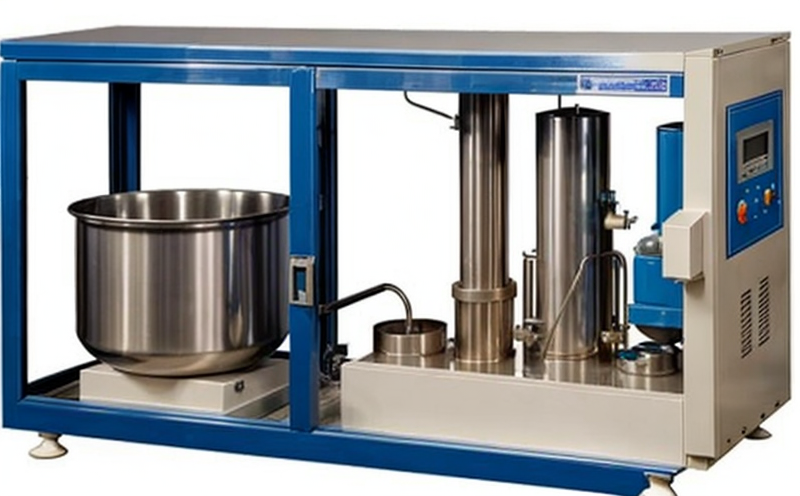EN 22405 DON Testing in Cereal By-Products
The European Standard EN 22405 outlines methodologies to determine the presence of deoxynivalenol (DON), a mycotoxin produced by certain fungi, particularly Fusarium graminearum. This toxin can pose significant health risks when present in cereal-based feeds and foods. DON contamination is especially concerning for livestock feeds as it can lead to reduced feed intake, nutrient malabsorption, and potential reproductive issues.
Testing for DON in cereal by-products like bran, shorts, and screenings is critical given that these by-products are often used as alternative ingredients in animal diets due to their high fiber content. However, the presence of DON can compromise the safety and nutritional value of such feeds, necessitating stringent quality control measures.
The test method described in EN 22405 involves extraction of DON from cereal samples followed by quantification using liquid chromatography with tandem mass spectrometry (LC-MS/MS). This approach ensures accurate measurement even at low concentrations. The standard specifies the use of a calibration curve for quantitation, and it requires that recovery rates be within acceptable limits to ensure reliable results.
The importance of this testing cannot be overstated, especially in light of increasing global concerns over mycotoxin contamination. Regulatory bodies such as the European Commission have set maximum permissible levels (MPLs) for DON in animal feed to protect livestock health and welfare. Adhering to these standards not only ensures compliance but also enhances consumer confidence by demonstrating a commitment to food safety.
Our laboratory utilizes state-of-the-art analytical equipment, including high-performance liquid chromatographs equipped with electrospray ionization (HPLC-ESI) interfaces, which provide precise and reproducible results. Our team of experts employs rigorous quality control procedures throughout the testing process to minimize errors and ensure accurate reporting.
In addition to meeting regulatory requirements, DON testing in cereal by-products aids in optimizing feed formulations. By identifying contaminated batches early on, producers can make informed decisions about blending or discarding materials, thereby reducing financial losses associated with substandard products. Furthermore, this practice supports sustainable agricultural practices by encouraging the use of safe and effective alternative ingredients.
Given the variability in environmental conditions that favor DON production, it is essential to conduct regular testing across different batches and regions. This proactive approach allows for timely intervention before any negative impacts on livestock health become apparent. Moreover, consistent monitoring helps build a robust supply chain where transparency and traceability are paramount.
The demand for accurate and reliable DON detection continues to grow as awareness about mycotoxin risks increases among stakeholders in the food industry. By leveraging advanced technologies and adhering strictly to international standards like EN 22405, our laboratory plays a crucial role in safeguarding public health and promoting responsible agricultural practices.
Industry Applications
The application of DON testing in cereal by-products extends beyond just ensuring compliance with regulatory requirements. It also serves multiple purposes within the broader context of food safety, animal nutrition, and sustainable agriculture:
- Ensuring Compliance: Laboratories like ours perform tests to verify that feed products meet stringent national and international standards for DON content.
- Optimizing Feed Formulations: By identifying contaminated batches early on, producers can adjust their formulas accordingly to maintain optimal nutritional profiles without compromising safety.
- Supporting Research & Development: The accurate quantification of mycotoxins enables researchers and developers to explore new ways to mitigate contamination risks or develop safer alternatives.
- Promoting Transparency: Regular testing fosters trust among consumers by providing assurance that the products they consume are safe and free from harmful contaminants.
In summary, DON testing in cereal by-products is vital for maintaining both human and animal health while supporting sustainable agricultural practices. It reflects a commitment to quality and safety standards that resonate across various sectors of the food industry.
Quality and Reliability Assurance
The integrity of our laboratory services is founded on rigorous adherence to international standards, including EN 22405 for DON testing. We maintain strict Quality Management Systems (QMS) that are ISO/IEC 17025 accredited, ensuring that all analytical processes meet the highest levels of accuracy and precision.
Our dedicated team of analysts uses cutting-edge technology to ensure consistent results. Each test follows a standardized protocol, from sample preparation through extraction and analysis, to minimize variability. Inter-laboratory comparisons conducted periodically confirm our consistency with international benchmarks.
Data interpretation is performed by experienced chemists who have undergone comprehensive training on the nuances of mycotoxin detection. They employ validated methods that account for factors such as matrix effects which can influence analytical outcomes. Reporting involves clear documentation of findings along with recommendations based on established guidelines and best practices.
Client satisfaction is paramount, thus we offer transparent communication regarding test progress and results. Feedback loops allow us to continuously improve our services by incorporating client insights into process refinements.
In conclusion, our focus on quality assurance ensures that clients receive reliable, accurate data they can trust for decision-making purposes. This commitment reflects our dedication not only to current standards but also future advancements in mycotoxin research and regulation.
Competitive Advantage and Market Impact
- Compliance Leadership: By adhering strictly to EN 22405, we ensure that our services meet or exceed regulatory standards, positioning us as leaders in the field.
- Precision and Reliability: Our use of advanced technology guarantees precise results, enhancing trust among clients and stakeholders alike.
- Innovation Support: The accurate quantification of mycotoxins enables researchers to explore new solutions for mitigating contamination risks or developing safer alternatives.
- Sustainability Advocacy: Regular testing promotes sustainable agricultural practices by encouraging the use of safe and effective ingredients, thus contributing positively to environmental conservation efforts.
The combination of these advantages allows us to not only meet but also exceed client expectations, thereby fostering strong relationships built on reliability and expertise. In doing so, we contribute significantly to enhancing overall market confidence in feed safety standards.





